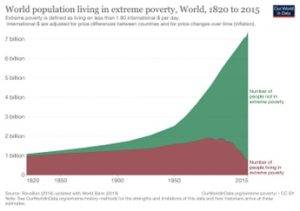As we’re entering another bear market, with dropping prices and rising crypto skepticism, it is perhaps a good time to ask: what is the long-term potential of crypto technologies anyways?
Long-term, I would argue, it may be the most important technology stack ever invented. That’s because it allows civilization to do three things:
-
improve cooperation
-
secure cooperation
-
Intelligize cooperation





















